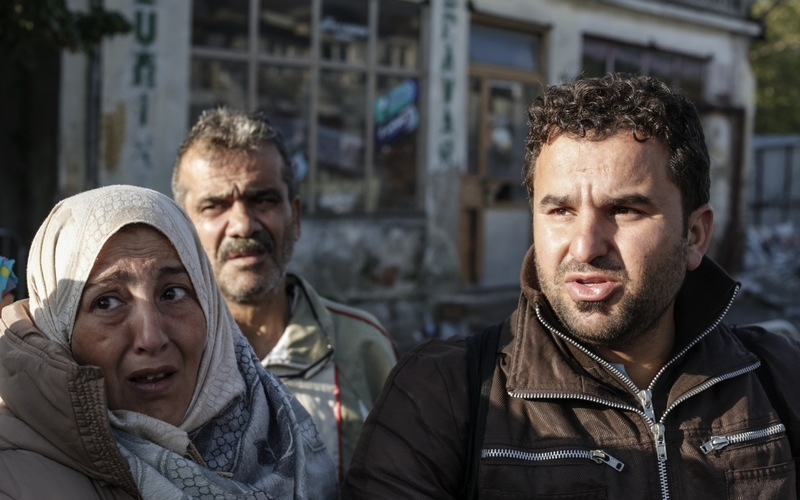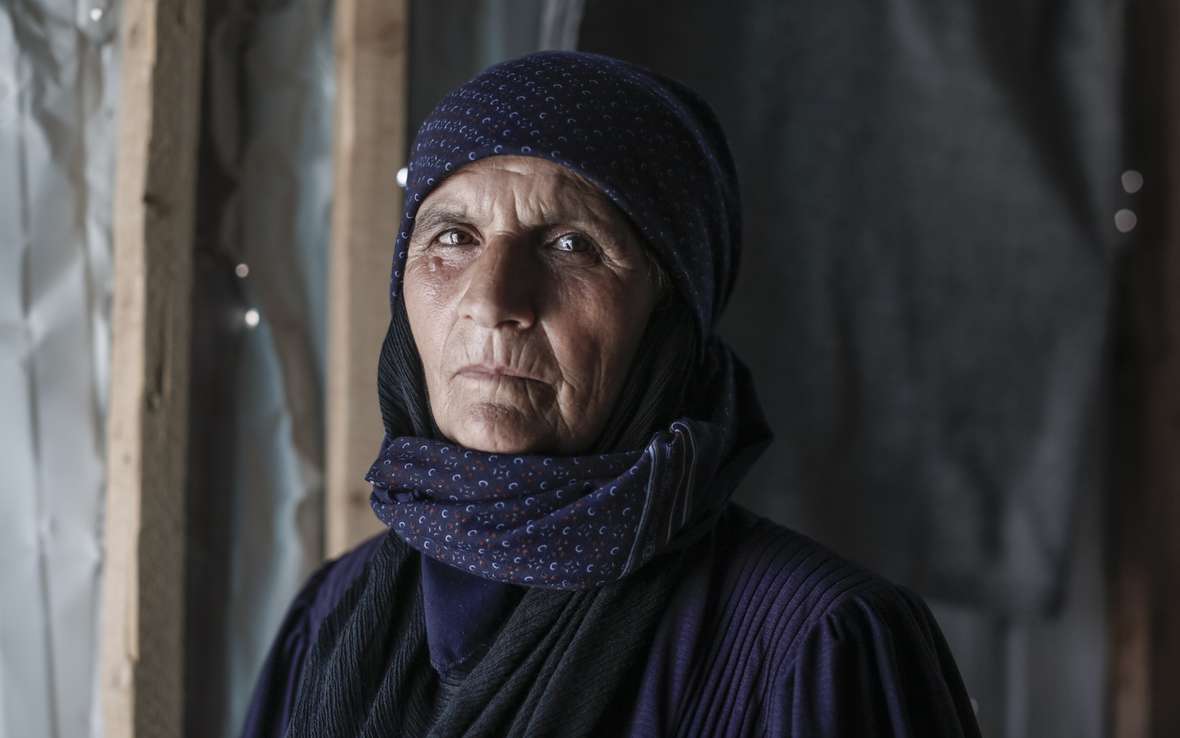‘The aid response is faltering due to lack of funds—or more accurately, the lack of political will to loosen up funds.’
Nearly five years of brutal conflict has driven millions of Syrians out of their country triggering one of the biggest displacement crises since World War II, but few rich nations, so far, have had the political will to do much of anything about it. Worse, some of those countries— Russia, Iran, Qatar, Saudi Arabia, Turkey, and the US —are fueling the bloodshed by transferring arms and ammunition to the various groups now tearing Syria apart.
In a new report, Solidarity with Syrians, Oxfam details the indifference wealthy nations have shown to countless families who are suffering through the barrel bombings and other attacks on civilians that continue to destroy their homes, kill their relatives, and shatter their security. To date, the US has accepted just 1,682 Syrians for resettlement over the last year—out of the more than four million who have fled. Most of those have crowded into overstretched neighboring countries, but tens of thousands of others are now risking perilous journeys to Europe to escape hunger and possible death at home.
The needs they face in Syria are staggering: 10 million people don’t have enough to eat; water is being used as a weapon of war with supplies cut by more than 50 percent since the start of the crisis; and more than half the country’s hospitals have been damaged or destroyed. Yet, rich countries are largely ignoring appeals for humanitarian support, meeting just 44 percent this year of the $8.9 billion that’s needed.
What’s at stake?
What are the consequences of a 56 percent shortfall in aid when the lives of families are at stake? Ahmed can tell you. He and his wife are the parents of five young daughters who fled from Homs, their hometown, in January 2013, after they were caught in a clash of gunfire and a bullet grazed the head of their 11-year-old.
The family now lives in Zarqa, Jordan, in an apartment that costs them $240 a month—money Ahmed has a hard time scraping together. He’s not allowed to work without a permit so the family has been surviving on vouchers from the World Food Programme and support from other groups, including cash assistance from Oxfam last year. But humanitarian funds are in short supply, and no longer enough to cover either the family’s rent or its food needs. Food vouchers were recently cut to $14 per person per month.
With options for his family shrinking, Ahmed is now weighing the risks of migrating to Europe so he can provide a better life for his daughters.
“We have one life and one death,” he said. “I've faced death several times. I've nearly been shot three times and I've seen people killed in front of me. By now I should be dead. I'm willing to take the risk and face the danger of travelling to Europe if it will help my children have a better life.”
Fair shares
In its analysis, Oxfam has established guidelines—based on gross national incomes—for the fair share of support wealthy nations can afford to shoulder, both in welcoming refugees like Ahmed for resettlement and in providing displaced Syrians with aid for their basic needs. While some countries have given generously toward the $8.9 billion goal—Kuwait has committed 538 percent of its fair share, the Netherlands has committed 227 percent, and Norway 186 percent—many others are falling far short. Russia, for instance, has contributed just 1 percent of its fair share, Saudi Arabia 6 percent, and Poland 9 percent.
In addition, Oxfam is calling for resettlement of 10 percent of refugees from Syria now registered in neighboring countries. That’s 408,806 people who need a safe place to live. Since 2013, many countries, including Russia, Japan, and Iceland, have not offered to open their doors to a single Syrian. While some countries like Norway andGermany have exceeded their fair share of resettlement pledges—at 293 percent and 112 percent, respectively—many others are not stepping up enough, including the US which is only at 8 percent of its fair share.
“The lack of leadership from the Obama administration on Syrian refugee resettlement is disappointing at best and negligent at worst,” said Oxfam America President Ray Offenheiser. “While the Obama administration has national security concerns, there are systems in place to resettle refugees safely. This cannot be an excuse for inaction. Leadership from the administration, and adequate funding from Congress to staff existing vetting processes could lead to refuge for thousands of needy Syrians. The US has a long history of taking in refugees in times of great need and of being a leader on humanitarian funding. It should not shirk its historical role in stepping up to help refugees during these extraordinary times.”
Oxfam is calling on the US government to welcome in 100,000 Syrian refugees in this new fiscal year.

Stop the flow of arms
But resettlement of refugees and increased support of displaced Syrians alone will not solve this crisis: Key to this is stopping the flow of weapons that are feeding the bloodshed and destruction.
The violence has continued unabated. In mid-August, government air raids in Douma resulted in one of the bloodiest attacks since the conflict began, leaving 96 civilians dead and injuring 200 more. Since the start of the war in 2011, more than 250,000 people have been killed in Syria and more than a million others injured. Yet, the weapons keep flowing: Prior to launching its recent air strikes in Syria, Russia acknowledged it sent advisers and military equipment into the country. Some Gulf countries are also continuing to finance arms and ammunition transfers .
Oxfam is calling for a complete halt to all the transfers. The continuous stream of weapons, spare parts, and ammunition is undermining the chance of any political solution to the crisis.
“Refugees from Syria and other countries have the right to be free from violence, to aid for basic needs, and dignity, and to a welcome of safe haven,” said Winnie Byanyima, Oxfam’s executive director. “They are being short-changed on all three fronts. There will be no end to the suffering of the people from Syria until action is taken on all these issues.”
Tell the US government to do their fair share and commit to resettle to at least 100,000 Syrian refugees in the coming fiscal year.
